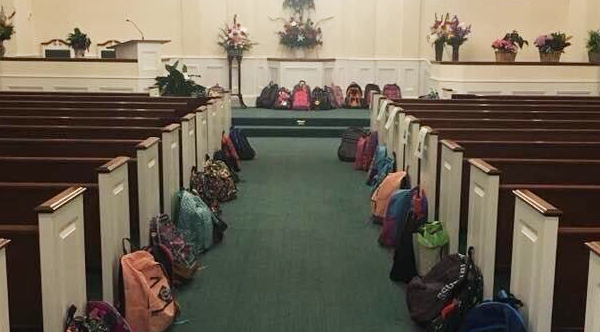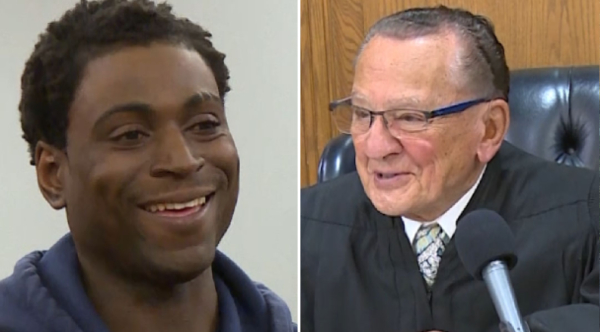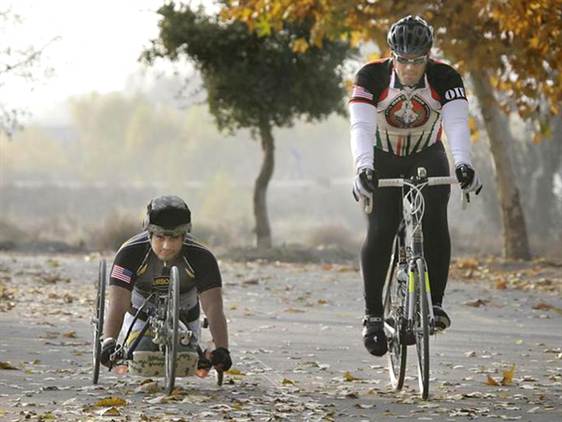Pedaling hope: War veterans plan 4,163-mile bike ride
February 20, 2012
Sometimes you just have to do something — anything — to get people’s attention.
Jeremy Staat and Wesley Barrientos, veterans of the Iraq War, have been consumed by that feeling for months now. They’re proud of their military service and proud of their fellow veterans — but they’re also alarmed by the jump in suicides among U.S. veterans and service members during the wars in Iraq and Afghanistan. They’re so concerned, in fact, that they plan to embark Sunday on a cross-continental bicycle ride to call attention to it.
The U.S. Department of Veterans Affairs estimates that a veteran dies by suicide every 80 minutes. That’s an annual death toll of about 6,500 — more than all the U.S. military casualties in Iraq and Afghanistan since those conflicts began.
“We need more support for our nation’s veterans,” said Staat, 35, a U.S. Marine veteran and retired NFL player who lives in Bakersfield, Calif. “They deserve our gratitude, and they should get the help they need.”
Staat began brainstorming ways to draw attention to veterans’ issues last summer with his buddy Barrientos, a U.S. Army veteran and double amputee who lost both his legs to a roadside bomb in Iraq in 2007.
“We thought, ‘OK, we can’t run across the country like Forrest Gump, but what can we do?’ ” Staat said. “And then we came up with this: We can ride bicycles across the country!”
Jeremy Staat, Wesley Barrientos and Dale Porter are giving themselves 100 days to cycle from California to the Vietnam Veterans Memorial in Washington, D.C. They plan to be at The Wall on Memorial Day in late May.
They’ve named their upcoming 4,163-mile journey the “Wall to Wall Cross Country Bicycle Ride,” and they’ve mapped it out with great care. They’ll begin at the Wall of Valor in Bakersfield on Sunday and visit 71 cities and 10 military bases on their way to the Vietnam Veterans Memorial in Washington, D.C.
Barrientos will use a special hand-cranked bicycle while wearing an 8-pound Kevlar helmet to honor fallen soldiers from his unit.
“We still have people out there fighting for us,” said Barrientos, 27, also of Bakersfield.
They’ve given themselves 100 days to traverse the country — so, if all goes as expected, they’ll arrive in Washington by Memorial Day weekend in late May.
Staat and Barrientos won’t be the only ones making this trek. Dale Porter, a 65-year-old Vietnam veteran from Bakersfield who’s been training by cycling about 40 miles a day, has decided to join them.
“When I came home from Vietnam, I felt ashamed,” Porter said. “People were calling me all kinds of names. I was embarrassed, and it put me in a shell.
“That’s why I want to be a part of what these guys are doing,” he added. “I want to help other veterans — maybe give them, you know, that sparkle in their eyes.”
While all three men feel compelled to make this trip out of gratitude and respect for their fellow veterans, their journey is also fueled by frustration. Staat and Barrientos said the rise in veteran suicides in recent years provides stark evidence of the challenges faced by physically and emotionally wounded veterans.
“Everything’s connected,” Barrientos said. “We’re not getting the treatment that we need once we get back home.”
During their ride, they plan to call for a “more efficient” Veterans Affairs system that makes it less taxing for veterans to access medical care, mental-health care and education benefits once they return to the States. They said it can take months to see the right doctor or get a claim processed, and many veterans just stop trying.
Barrientos’ military honors include three Purple Hearts and five Army Commendation Medals, and, as a double amputee, his wounds are quite obvious. Nevertheless, he said he’s faced challenges accessing care ever since his third tour of duty in Iraq — and it can be exasperating, because he’s prone to falls.
Wesley Barrientos, left, and Jeremy Staat get ready to go for a ride. While cycling across the country, Barrientos will use a hand-cranked bicycle and wear an 8-pound Kevlar helmet to honor fallen soldiers from his unit.
“I don’t have any feet ... so it’s constant a fight against gravity,” he said. “Sometimes gravity wins, sometimes I win.”
Gravity prevailed one day in 2010 when Barrientos’ prosthetic knee gave out on him, causing him to slip and fall in his garage and break two fingers on his right hand. Barrientos said he had to pay the emergency-room bill out of pocket because the VA did not view the incident as an emergency.
He also said the suction valves, or seals, that hold his prosthetic legs in place have been broken for almost a year now, and he hasn’t been able to get them repaired with the VA’s help. So, he’s resorted to creating his own seals with thick white tape and clear plastic bags.
A spokeswoman for the Department of Veterans Affairs said the agency could not comment on the specifics of Barrientos’ care because of patient privacy issues. But in a statement to TODAY.com, the VA Department described a crushing caseload in the wake of the wars in Iraq and Afghanistan and said veterans of those conflicts are relying on the VA at “unprecedented levels.”
“In the next five years, more than 1 million veterans are expected to leave military service,” the Veterans Affairs Department said. “Through September 2011, of approximately 1.4 million veterans who deployed to and returned from Operations Enduring Freedom and Iraqi Freedom, 67 percent have used some VA benefit or service — a far higher percentage than those from previous wars.”
Military service members and veterans who are struggling with thoughts of suicide can call 1-800-273-TALK (8255) and choose option “1” to speak directly with a trained professional who can help. The person who answers also can direct callers to ongoing mental-health services. To learn more, visit the U.S. Department of Veterans Affairs’ suicide prevention website.
The VA said it has greatly expanded its mental-health services and suicide-prevention efforts in recent years. Since the VA’s suicide hotline launched in 2007, it has saved the lives of more than 18,000 veterans who were ready to hurt themselves and connected more than 55,000 callers to mental-health services, the VA said. (See blue box at right for the hotline number and a link to more resources.)
But Barrientos and Staat maintain that more needs to be done, and they anticipate meeting many veterans across the country who will agree with them.
“My situation isn’t special — it’s a common situation in the VA,” Barrientos said. “And what about veterans who don’t have visible wounds like I have? What kind of treatment do they get?”
Source: MSNBC
Click Here For The Most Popular On Sunny Skyz
 Couple Rescues Prairie Dog From Their Dog's Mouth, Then Decides To Adopt It
Couple Rescues Prairie Dog From Their Dog's Mouth, Then Decides To Adopt It
 Ohio Man Makes Waves With His Fully Functioning Hot Dog Boat
Ohio Man Makes Waves With His Fully Functioning Hot Dog Boat
 TeacherтАЩs Final Wish: Backpacks For Students In Need Fill The Aisles At Her Funeral
TeacherтАЩs Final Wish: Backpacks For Students In Need Fill The Aisles At Her Funeral
 Why Hope Is The Key To A Meaningful Life, Backed By New Research
Why Hope Is The Key To A Meaningful Life, Backed By New Research
 These Are The Movie Scenes People Say Are Absolutely Flawless
These Are The Movie Scenes People Say Are Absolutely Flawless
 Judge Waives Parking Fines So Dad Can Keep Supporting SonтАЩs Space Dreams
Judge Waives Parking Fines So Dad Can Keep Supporting SonтАЩs Space Dreams
 Every Day, This Golden Retriever Leaps Into The Pig Pen To Play With The Piglets
Every Day, This Golden Retriever Leaps Into The Pig Pen To Play With The Piglets
 Dog Saves His Best Friend's Life In Incredible Moment Caught On Video
Dog Saves His Best Friend's Life In Incredible Moment Caught On Video
 Woman Tries To Help Bird, Then This Happened... And We Can't Stop Laughing
Woman Tries To Help Bird, Then This Happened... And We Can't Stop Laughing
 Newborn Baby Has Sweet Conversation With Dad While Lying On MomтАЩs Face
Newborn Baby Has Sweet Conversation With Dad While Lying On MomтАЩs Face
 Sassy Pig Throws Hilarious Tantrum, Slams Door And Gives Mom Silent Treatment
Sassy Pig Throws Hilarious Tantrum, Slams Door And Gives Mom Silent Treatment

